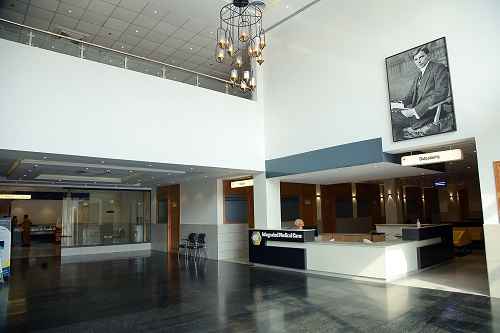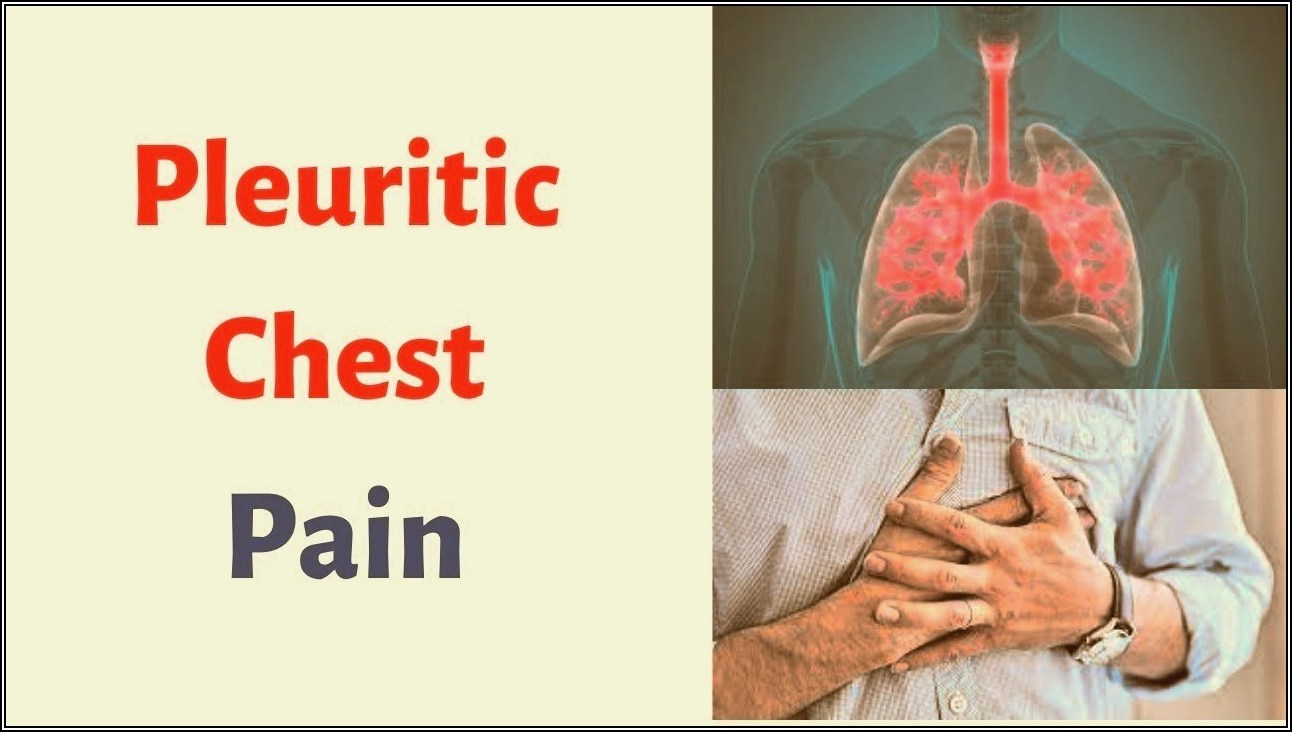- 23-Aug-23
Pleuritic chest pain is a specific type of chest discomfort that occurs when the pleura, a thin membrane that lines the lungs and the inside of the chest cavity, becomes inflamed or irritated. This pain is often described as sharp or stabbing and tends to worsen when taking deep breaths, coughing, or sneezing. It can feel like a sudden, intense sensation and is typically localized to a specific area of the chest.
Pleuritic chest pain is caused by the friction between the inflamed pleural layers as they rub against each other during breathing movements. This pain is distinct from other types of chest pain, such as the dull ache associated with heart-related issues. The underlying causes of pleuritic chest pain can vary and include conditions like pleuritis (inflammation of the pleura), infections, lung conditions, or even injuries. It's important to seek medical attention if you experience pleuritic chest pain, especially if it's severe or accompanied by symptoms like difficulty breathing fever, or persistent coughing. A healthcare professional can diagnose the cause of the pain and recommend appropriate treatment to address the underlying issue.
Left Side Chest Pain
Left-side chest pain refers to discomfort or pain that is localized on the left side of the chest. This type of pain can be caused by various factors and conditions, ranging from mild to more serious issues. Some potential causes of left-side chest pain include:
- Muscle Strain: Overexertion, heavy lifting, or sudden movements can strain the muscles in the chest, leading to pain on the left side.
- Costochondritis: Inflammation of the cartilage that connects the ribs to the breastbone can result in sharp or aching pain on the left side of the chest.
- Heart Conditions: While heart-related pain can sometimes be felt on the left side, it's important to note that heart attacks and angina can cause a more central or radiating pain that may also affect the left arm, neck, jaw, or back.
- Gastroesophageal Reflux Disease (GERD): Stomach acid flowing back into the esophagus can cause a burning sensation or discomfort on the left side of the chest.
- Lung Conditions: Pulmonary issues like pneumonia, pleuritis, or a collapsed lung (pneumothorax) can lead to pain on the left side of the chest.
- Rib Fractures: A fractured rib on the left side can cause localized pain that worsens with movement or breathing.
- Pancreatitis: Inflammation of the pancreas can cause pain in the upper left side of the abdomen that may radiate to the chest.
- Spleen Issues: Enlargement or irritation of the spleen can sometimes result in left-sided chest discomfort.
- Anxiety or Panic Attacks: Intense anxiety or panic can cause chest pain on the left side due to increased heart rate and muscle tension.
If you experience left-side chest pain, it's important to pay attention to accompanying symptoms such as shortness of breath, sweating, nausea, or pain radiating to other areas. If the pain is severe, persistent, or accompanied by these symptoms, seek medical attention promptly to determine the cause and receive appropriate treatment.
Right Side Chest Pain:
Right-side chest pain refers to discomfort or pain that is localized on the right side of the chest. Similar to left-side chest pain, there can be various causes for this type of pain. Some potential reasons for right-side chest pain include:
- Gallbladder Issues: Gallstones or inflammation of the gallbladder can cause pain on the right side of the chest, often radiating to the right shoulder or back.
- Liver Conditions: Liver inflammation, fatty liver disease, or liver infections can lead to discomfort on the right side of the chest.
- Appendicitis: Inflammation of the appendix can sometimes lead to pain that starts around the belly button and moves to the lower right side of the abdomen, which might be felt as right-side chest pain.
- Rib Fractures: Fractured ribs on the right side can result in localized pain that worsens with movement or breathing.
- Gastrointestinal Issues: Conditions like peptic ulcers or gas can cause discomfort that is felt on the right side of the chest.
If you experience right-side chest pain, it's important to consider any accompanying symptoms, such as difficulty breathing, nausea, vomiting, or pain radiating to other areas. If the pain is severe, persistent, or associated with these symptoms, it's advisable to seek medical attention promptly to determine the cause and receive appropriate care.
Integrated Medical Care Hospital (IMC Hospital):
In Pakistan, IMC Hospital is a well-known and frequently discussed top medical facility. The senior, capable, and experienced medical professionals at the IMC Hospital may now call on their years of experience working in some of the most renowned and regarded medical facilities in the world because they are all under one roof Integrated Medical Care Hospital (IMC Hospital) can be contacted to arrange a consultation.

 Map
Map










